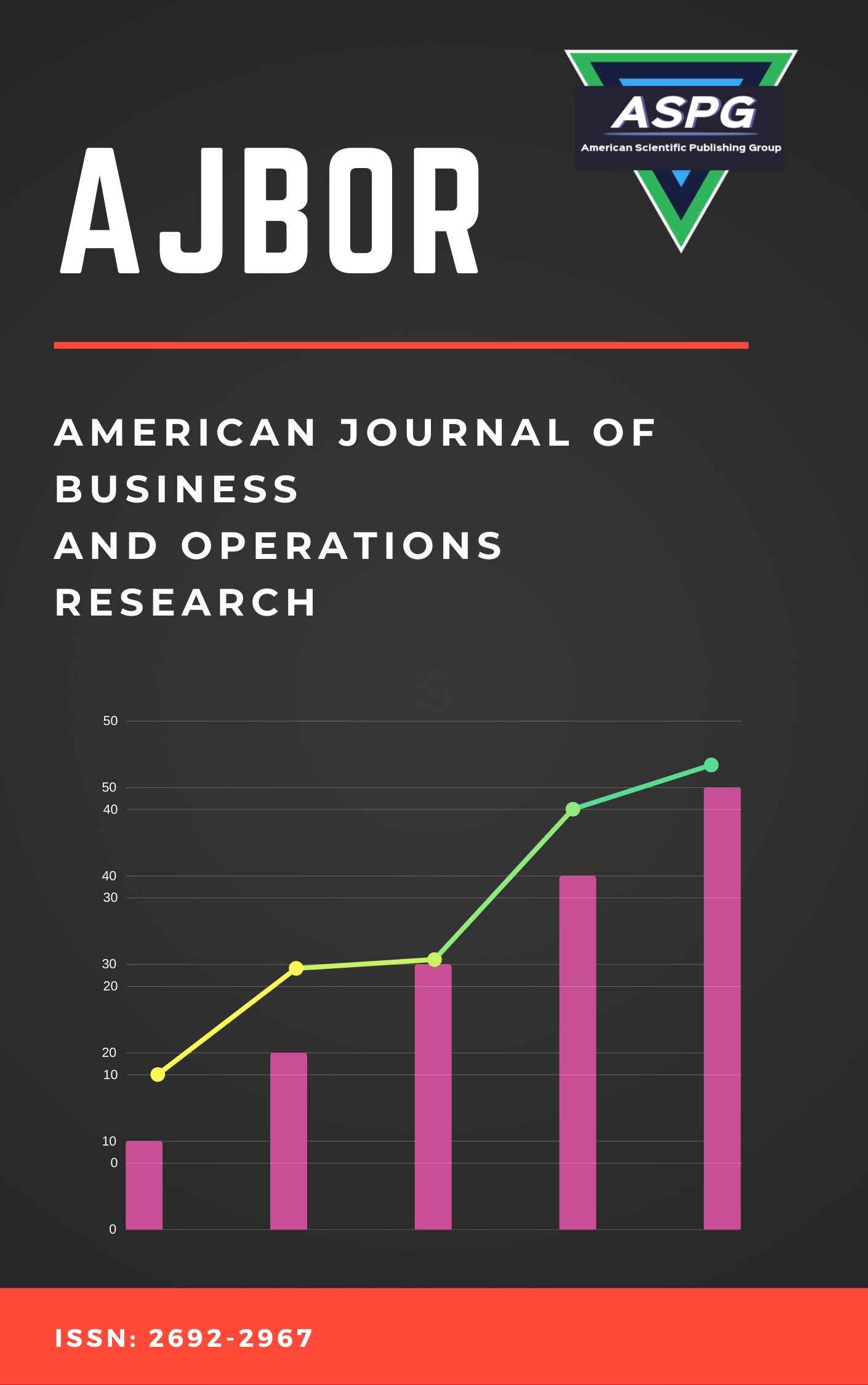

Volume 1 , Issue 1 , PP: 36-51, 2020 | Cite this article as | XML | Html | PDF | Full Length Article
Maha Saad Metawea 1 *
Doi: https://doi.org/10.54216/AJBOR.010104
This paper investigates the Role of financial institutions in supporting entrepreneurial success in one of a very important emerging economy in the Middle East, Egypt. Also focuses on different tools used by either governmental or non-governmental agencies that contributes to help entrepreneurs starting their jobs, and as a result, achieving the sustainable development goals (SDGs). Throughout the paper, reports various documents and academic literature were presented to determine the different types of sustainable development financing instruments available. Moreover, the various financial services provided by governmental and nongovernmental sectors are reviewed. Also, different types of challenges that may face entrepreneurs are also discussed. The interrelationships among those agencies as well as other technical support agencies are formulated in an integrated framework that describes the nature and direction of those relationships for the purpose of providing an adequate support to Egyptian entrepreneurs in various economic sectors.
entrepreneurship, accelerators, financial sector and non-financial services financial and technical support
[1] Ahmad, I. A. A. E. S., & Abdel-Aziz, M. A. A. S. (2015). Assessing Entrepreneurship Ecosystem in Egypt: Access to Finance and Entrepreneurship Education Challenges and Opportunities. Cairo University. 2-49.
[2] kjkl Baumol, J. William. 2008. "Entrepreneurs, Inventors and the Growth of the Economy." Part of the Supplemental Materials for Innovation and U.S Competitiveness.
[3] Bhattacharya, S., &Londhe, B. R. (2014). Micro Entrepreneurship: Sources of Finance & Related Constraints. Procedia Economics and Finance, 11, 775-783.
[4] Business, D. (2017). Distance to Frontier and Ease of Doing Business Ranking. A World Bank Group Flagship Report.
[5] Egypt Network for Integrated Development (2014) Entrepreneurship in Egypt: Opportunities, Challenges and Recommendations (Issue brief No. 003).
[6] El Dahshan, M., Tolba, A. H., &Badreldin, T. (2012). Enabling entrepreneurship in Egypt: Toward a sustainable dynamic model. Innovations, 7(2), 83-106.
[7] El-Said, H., Al-Said, M., &Zaki, C. (2014). Small and medium enterprises landscape in Egypt: New facts from a new dataset. International Journal of Entrepreneurship and Small Business, 20(3), 286-309.
[8] Hattab, H. W. (2014). Impact of entrepreneurship education on entrepreneurial intentions of university students in Egypt. The Journal of Entrepreneurship, 23(1), 1-18.
[9] Jochaud, P. (2013). Youth productive employment through entrepreneurship development in the Arab Region: State of the art of interventions in Egypt and Tunisia. United Nations Industrial Development Organization (UNIDO), (05), 1-113.
[10] Kirby, D. A., & Ibrahim, N. (2011). Entrepreneurship education and the creation of an enterprise culture: Provisional results from an experiment in Egypt. International Entrepreneurship and Management Journal, 7(2), 181-193.
[11] Loewe, M. (2013). Industrial policy in Egypt 2004-2011. Deutsches Institut für Entwicklungspolitik, German Development Institute ISSN 1860-0441, 13, 1-109.
[12] Local Economic and Employment Development. OECD, (2012). Policy Brief on Youth Entrepreneurship. Entrepreneurial Activities in Europe (pp. 3-20). OECD/European Union.
[13] Meredith, G.G., Nelson, R.E., & Neck, P.A. (1996). The practice of entrepreneurship (2nd Impression). Lagos: University Press.
[14] Schoof, U. (2006). Stimulating Youth Entrepreneurship: Barriers and incentives to enterprise start-ups by young people (No. 993881573402676). International Labor Organization.
[15] The World Bank (2007). A study led by Nasr , S. Access to Finance and Economic Growth in Egypt (pp. 1-104, Rep.).
[16] World Bank. 2017. Doing Business 2017: Equal Opportunity for All. Washington, DC: World Bank. DOI: 10.1596/978-1-4648-0948-4. License: Creative Commons Attribution CC BY 3.0 IGO
[17] World Bank. The Road not Traveled: Education Reform in the Middle East and North Africa, 2005.
[18] World Bank, IFC, Doing Business 2010, Arab Republic of Egypt, 2009.